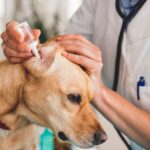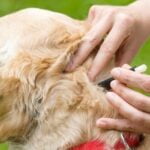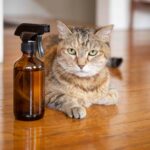Table of Contents
Preventing pet dental disease is crucial for maintaining your pet’s overall health and well-being. Dental issues can lead to serious health problems if left untreated. The best preventing pet dental disease strategies involve regular dental care, a proper diet, and professional check-ups. In this guide, we provide seven essential tips to help you keep your pet’s teeth and gums healthy.

Top Tips for Preventing Pet Dental Disease
1. Brush Your Pet’s Teeth Regularly
Brushing your pet’s teeth is the most effective way to prevent dental disease. Use a pet-specific toothbrush and toothpaste, and aim to brush your pet’s teeth at least two to three times a week. Regular brushing helps remove plaque and prevent tartar buildup. For more on brushing your pet’s teeth, visit ASPCA Brushing Tips.
2. Provide Dental Chews and Toys
Dental chews and toys are designed to help clean your pet’s teeth and massage their gums. These products can reduce plaque and tartar buildup while keeping your pet entertained. Ensure the chews and toys are appropriate for your pet’s size and dental health. For recommendations, see PetMD Best Dental Chews.
3. Feed a Balanced Diet
A balanced diet is essential for your pet’s dental health. Dry kibble can help reduce plaque buildup compared to soft food. Additionally, some pet foods are formulated specifically for dental health. Consult your veterinarian to choose the best diet for your pet. For dietary tips, visit Hill’s Pet Nutrition.
4. Schedule Regular Veterinary Check-Ups
Regular veterinary check-ups are crucial for preventing dental disease. Your vet can perform professional cleanings and check for signs of dental problems. They can also provide personalized advice for your pet’s dental care routine. For more on veterinary dental care, see AVMA Pet Dental Care.
5. Monitor for Signs of Dental Issues
Be vigilant for signs of dental disease in your pet. Common signs include bad breath, red or swollen gums, difficulty eating, and excessive drooling. If you notice any of these symptoms, consult your veterinarian promptly. For more on identifying dental issues, visit The Spruce Pets Dental Problems.
6. Use Dental Water Additives
Dental water additives can help maintain your pet’s oral health by reducing plaque and freshening their breath. These additives are easy to use—simply add them to your pet’s drinking water as directed. For recommended products, see PetMD Dental Water Additives.
7. Avoid Hard Chews and Bones
Avoid giving your pet hard chews and bones, which can cause tooth fractures and other dental injuries. Instead, opt for safer alternatives like dental chews and rubber toys. Always supervise your pet when they are chewing on any product. For more on safe chewing options, visit AKC Safe Chew Toys.
Conclusion on Preventing Pet Dental Disease
Maintaining your pet’s dental health is vital for their overall well-being. By following these essential tips on preventing pet dental disease, you can help ensure your pet’s teeth and gums remain healthy. Regular dental care, a balanced diet, and professional check-ups are key to preventing dental issues. For more advice on pet care, check out our Pet Care Guide.
FAQs on Preventing Pet Dental Disease
How often should I brush my pet’s teeth?
Aim to brush your pet’s teeth at least two to three times a week. Regular brushing is the most effective way to prevent plaque and tartar buildup.
What type of toothbrush and toothpaste should I use for my pet?
Use a pet-specific toothbrush and toothpaste. Human toothpaste can be harmful to pets. Pet toothpaste is formulated to be safe and palatable for animals.
Can diet really affect my pet’s dental health?
Yes, diet plays a significant role in dental health. Dry kibble helps reduce plaque buildup, and some pet foods are specifically formulated to support dental health.
What are the signs of dental disease in pets?
Common signs include bad breath, red or swollen gums, difficulty eating, excessive drooling, and visible tartar on teeth. Consult your vet if you notice any of these symptoms.
Are dental chews effective in preventing dental disease?
Yes, dental chews can help reduce plaque and tartar buildup. They are a useful supplement to regular brushing and veterinary dental care.
How often should my pet have a professional dental cleaning?
Most pets benefit from a professional dental cleaning once a year. Your veterinarian can recommend a suitable schedule based on your pet’s specific needs.











